80 Years Later — The World War II Generation is Almost Gone
All those who lived during the 20th century's bloodiest conflict will inevitably fade into history.
Foreign Perspectives is a mix of free and paid content. Certain columns such as these are free for all subscribers, but other articles will be exclusive for paid subscribers. If you enjoy the work I do, please consider upgrading to a monthly or yearly subscription. Your support is greatly appreciated and ensures that this Substack can continue to deliver high quality pieces.
My grandmother was five years old when the Imperial Japanese Army invaded Manchuria on Sept. 18, 1931. While the traditional start date of World War II is typically associated with Hitler’s invasion of Poland on Sept. 1, 1939, you really can trace the beginning of the overall global conflict to what was happening in Northeast Asia long before.
Hailing from Shenyang, my family lived under the Japanese occupation like millions of other Chinese. My grandmother’s father was the chauffeur for a high-ranking official, which gave her family a better living than most. She and her sister learned Japanese at a good school and even visited Tokyo during World War II to record music with the NHK Symphony Orchestra as a child singer. As all that was happening, my great-grandfather was apparently stealing gasoline to sell the black market. Somehow he didn’t get caught, and they were lucky enough to survive the war.
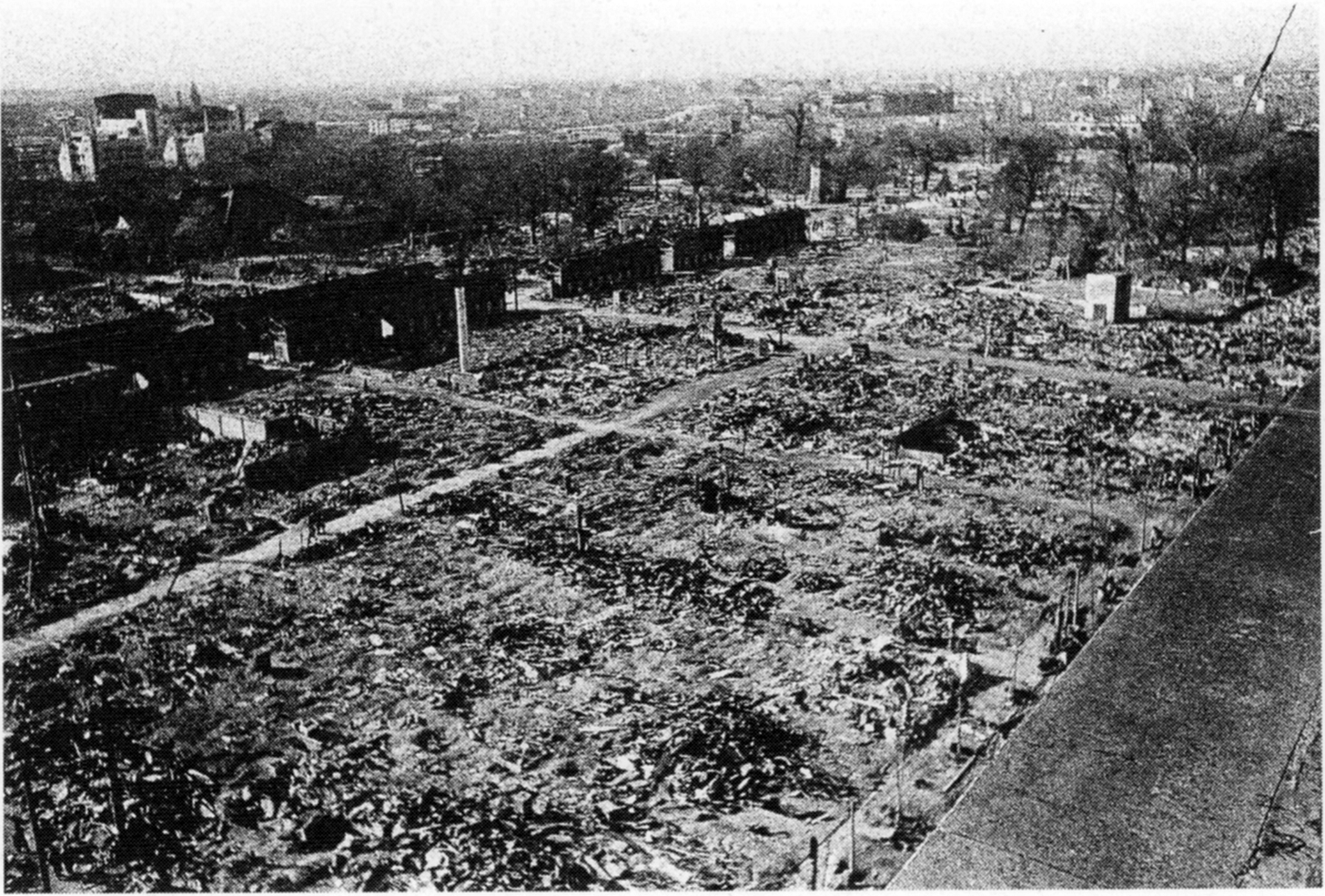
Emperor Hirohito’s official proclamation of surrender happened 80 years ago to this day on Aug. 15, 1945. The now defeated Japan would officially sign the official documents a few weeks later on Sept. 2, bringing an end to the bloodiest conflict in human history. My relatives were some of the lucky ones. Up to 20 million Chinese are estimated to have died in the conflict. Depending on the criteria used, the worldwide total deaths could have been as high as 75 million.
Grandmother lived to the ripe age of 96, passing away of COVID in 2022 surrounded by loved ones in the United States. She had not just survived World War II, but the Great Depression beforehand, the Cultural Revolution afterward, and practically all of the turbulent events that China went through in the middle of the 20th century. I had the privilege to hear her stories firsthand, which is something I will always be grateful for. When I look back on her life, the realization hits me that my generation will probably be the last to hold conscious memories of speaking to the World War II generation.
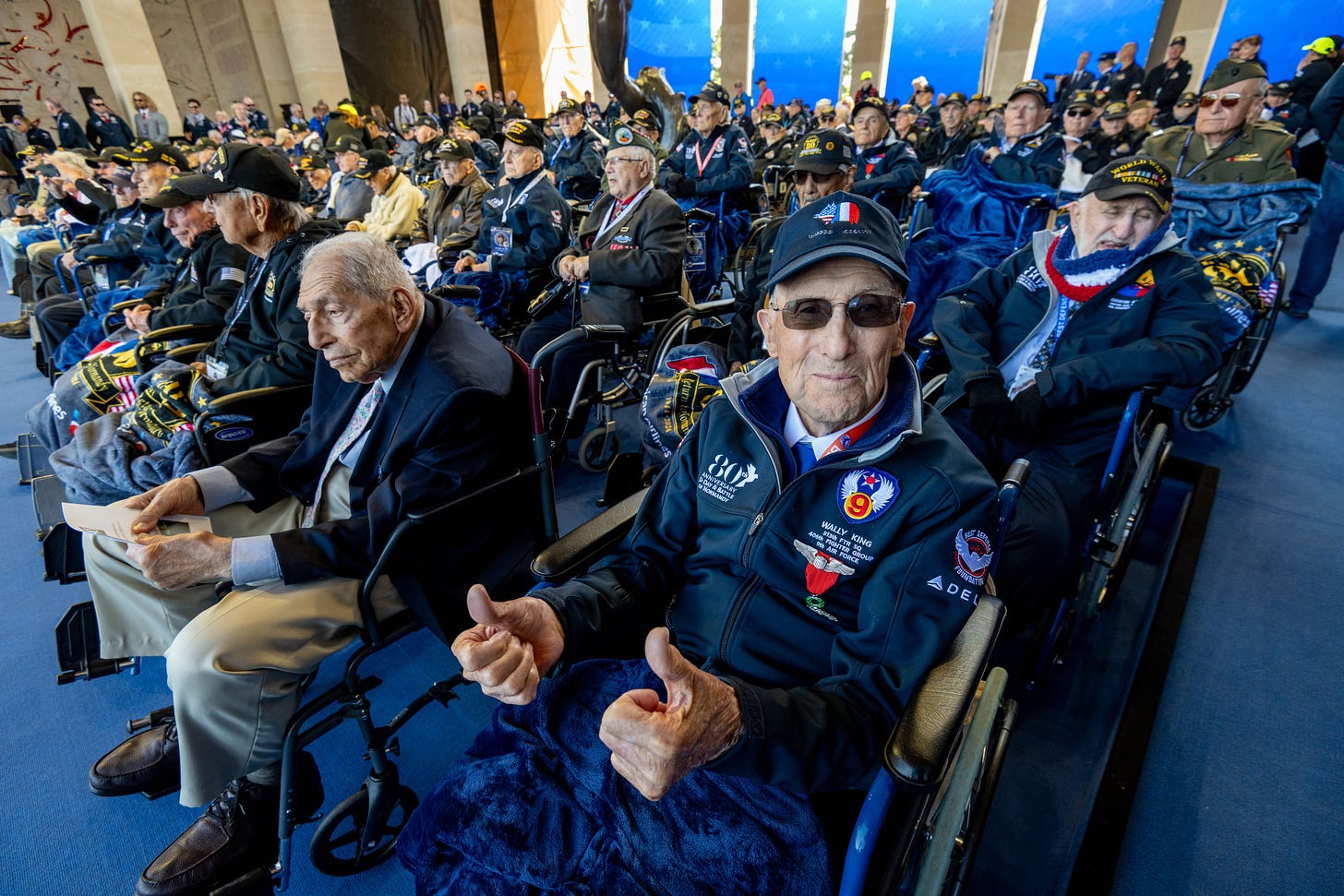
The importance of this cannot be overstated. Recent updates from 2024 reported that just about 66,100 WWII veterans were still alive in the United States out of the 16.4 million who participated in the conflict. The real number is assuredly lower now considering that about 131 die every week. It is unclear how many surviving vets there are worldwide, but the total number is somewhere between 300,000 and 500,000. I remember being in middle school when the last surviving American veteran of the First World War, Frank Buckles, passed away in 2011 at 110 years old. Florence Green, a British woman who was believed to be the last known service member of the entire conflict, followed in 2012.
As of this writing, Ilie Ciocan from Romania is the oldest living WWII veteran at the astounding age of 112. Considering that the youngest people who served are in their late 90s and the age patterns of veterans from WWI, we can probably expect the final WWII vets who achieve the greatest feats of maximum human longevity to pass away in the 2030s. The last men to tell their stories will be those who lied about their age to enlist or the ones from countries where teenagers were drafted to fight. Beyond soldiers, there are over 200,000 Jewish survivors of the Holocaust still alive. Many of them were children liberated from the camps. With their median age today being 87, a small portion will likely live into the 2040s or even 2050s. Regardless, 90% of all Holocaust survivors will pass away in the next 15 years.
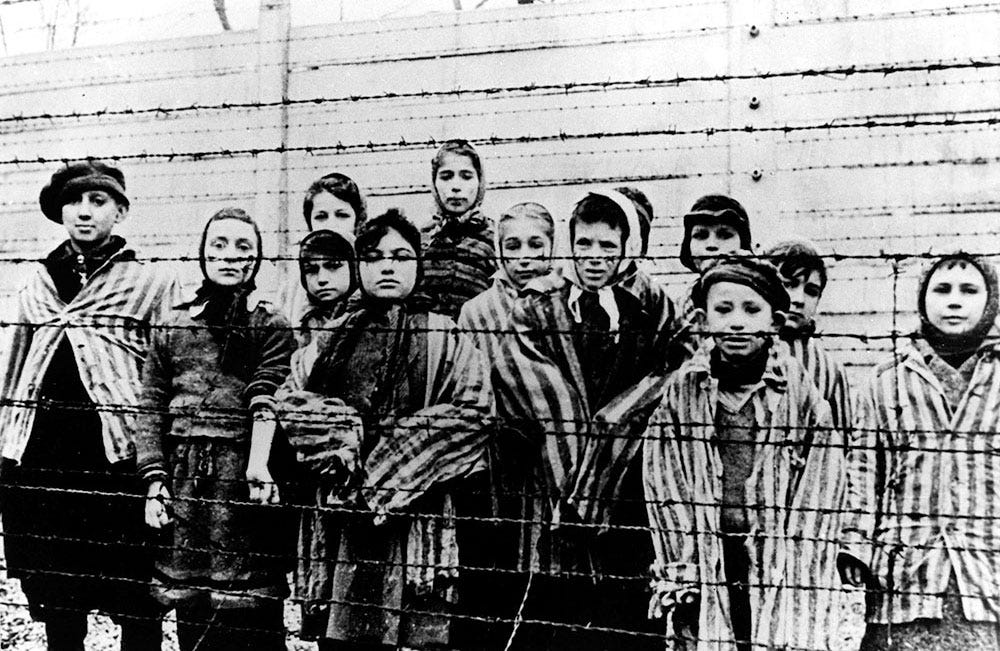
Eight decades on from the end of WWII, we have reached a turning point when it comes to public memory and direct connections with the men and women who sacrificed everything to create the world we live in now. Those who participated in the war or are old enough to remember what life was like before, during, and immediately after it are literally a dying breed that will soon be gone forever. Being born in 1997 and growing up in the early 2000s, my default image of WWII vets for the longest time was people in their 70s and 80s. Elderly folks, but ones you felt would be around forever to offer pearls of wisdom and sage advice. The passage of time, unfortunately, does not work that way.
One should remember that this is a generation born when widespread radio was still a relatively new invention and the closest thing to a modern computer was a tabulating machine. After being raised on the economic struggles of the Great Depression, they were thrust into a world tearing itself apart through territorial invasions waged by empires, rapidly changing borders, mass slaughter, and eventually the invention of nuclear weapons. The sheer amount of people who were killed by the end of World War II is a staggering pile of corpses that hardly anyone today can comprehend. Those who lived through that era then witnessed the decades of profound historical and social shift which brought the 20th century into the 21st.

It would of course be ahistorical to idealize the WWII generation as uniquely better than those who came after them. They were human beings prone to the same follies and weaknesses which still exist today. The tyranny of the Nazis and the atrocities of the Holocaust were not solely due to Adolf Hitler, but the culmination of antisemitic attitudes and other social conditioning which had existed among Germans long before. Italian and Japanese fascism were similarly the result of destructive collectivist attitudes shared by enough people in their respective societies. Scholars have spent decades examining the underlying causes of WWII, but the era overall showed the best and worst parts of the human condition.
While many veterans on the Allied side have regaled the world with their stories, those on the Axis side are far less willing. For quite obvious reasons, German and Japanese veterans are reluctant to admit their part in being on the wrong side of a war which killed millions of people. Some were drafted and had simply had little choice, while others feel immense shame for being duped by their governments and the social climate around them at the time. Even so, what they have to say still matters. A recent piece published in The New York Times highlighted the rare perspectives of surviving Japanese veterans. None of the men interviewed glorified their time serving in the war and instead expressed hopes that future generations do not go down the same path.
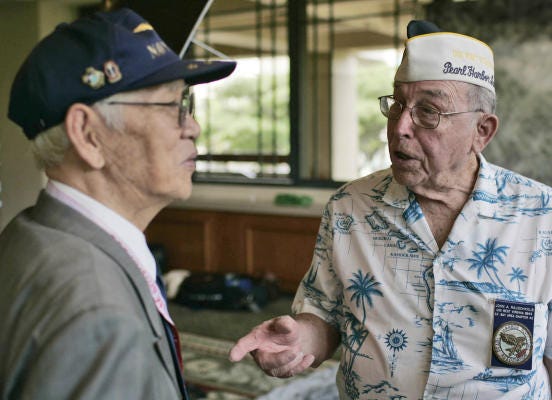
My position as an American of Chinese descent living in Japan today would have certainly been unthinkable 80 years ago. This was a country that bombed Pearl Harbor and waged a completely unjustified war of aggression against its Asian neighbors, yet it is now a stalwart ally of the United States and among the best examples of liberal democracy in the world. No one in 1945 believed that Japan would be able to rise from the ashes of its utter destruction into the nation it is now, but it defied all the odds. As with modern Germany, that kind of transformation was not the result of happenstance. It could only have happened by learning from the mistakes of the past and actively wanting to build a better future.
When the last of the WWII generation departs from this world, we will only have the memories they leave behind in testimonies, photographs, and film. It is imperative that we preserve as much as possible before all of them fade into history. If you are fortunate enough to know anyone who served and they are still alive, treasure all the time you have with them. The experiences and stories they have to share will be invaluable long after they are gone.
Foreign Perspectives is a reader-supported Substack. If you like my work and have come this far, consider opting for a paid subscription so I can continue writing in-depth articles such as these on a regular basis. Your support is greatly appreciated!


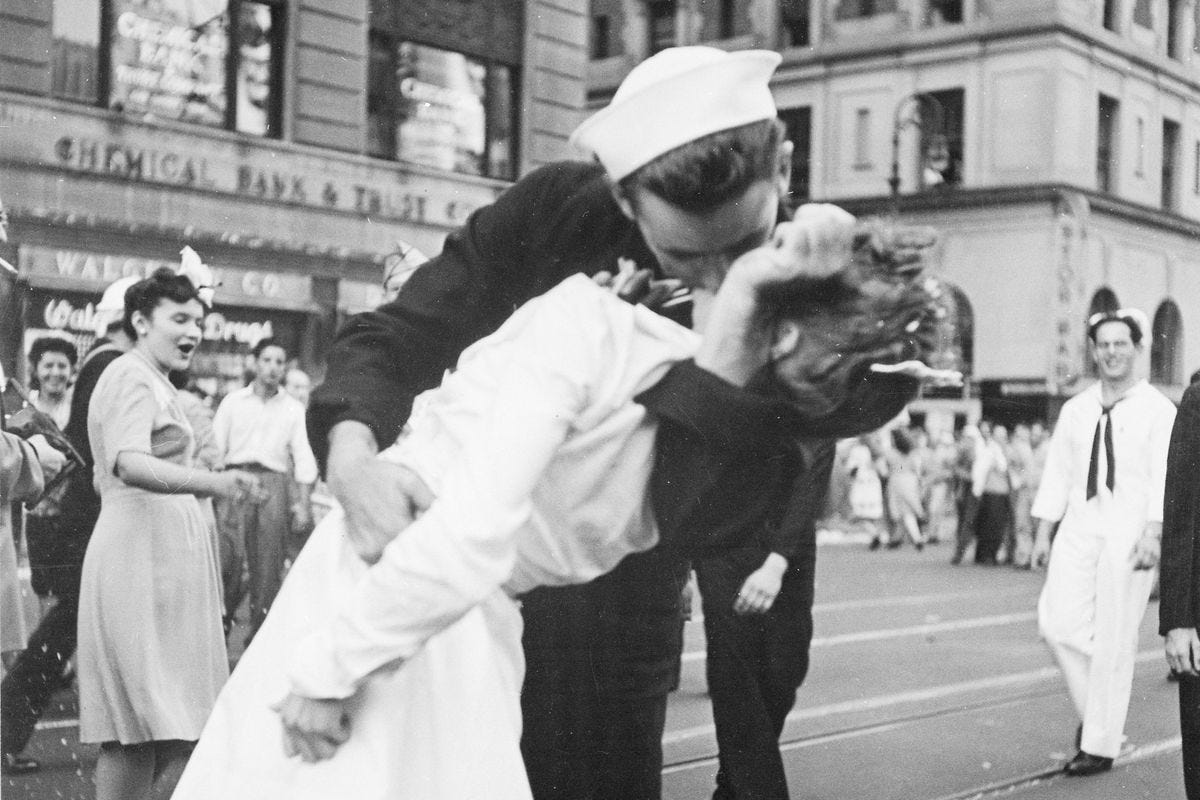
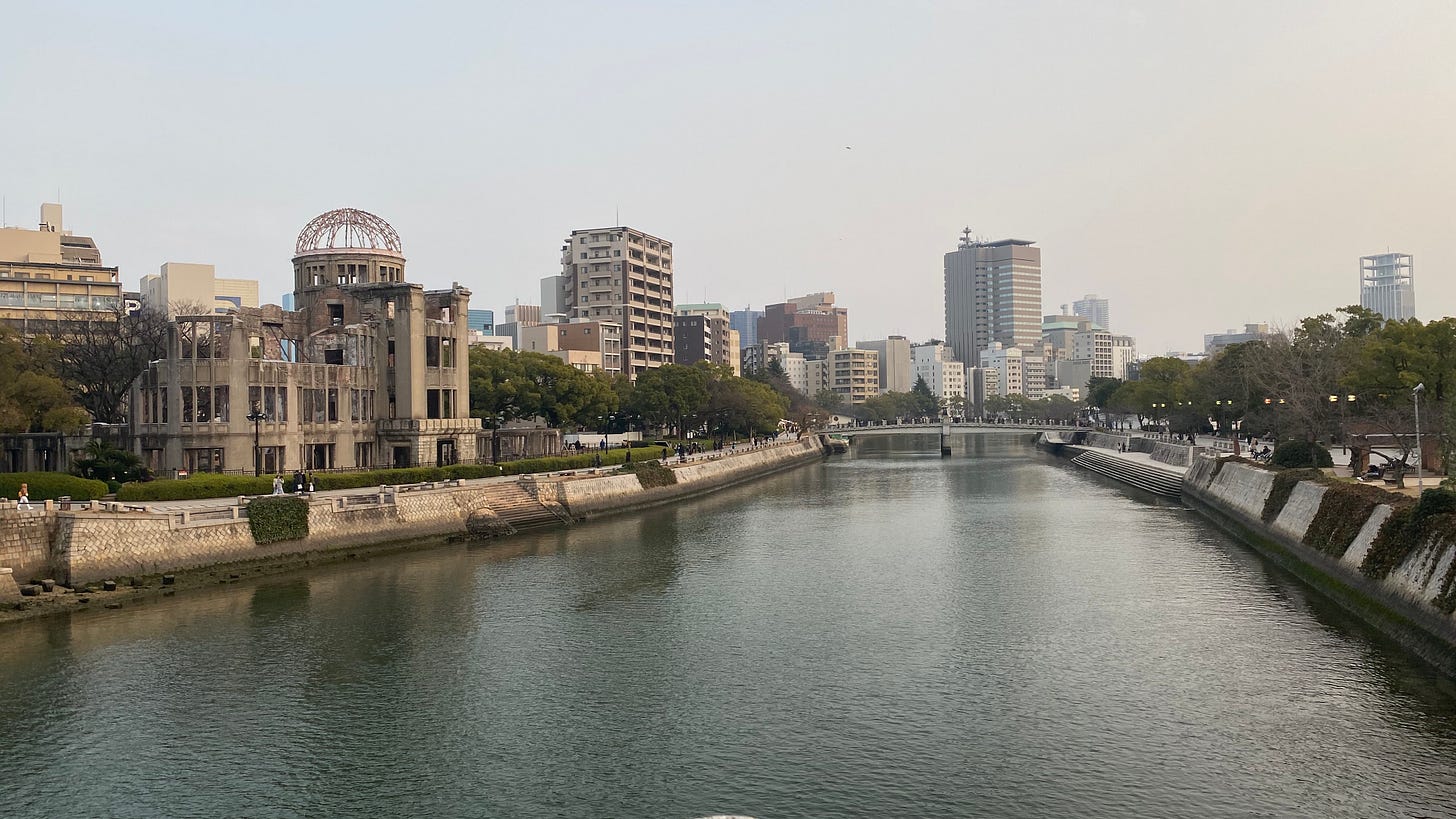
I have a living Great Grandfather on my Mothers side of the family who served in the Navy during WW2 and over the years told some stories, most of which have escaped my memory sadly. I can actually still remember him coming into my kindergarten class to talk to the class and answer questions as a learning experience. He was among those who lied about his age to enlist, being 14 if I recall correctly. My grandparents on both sides of the family have already passed, so he is now essentially my siblings' and I only grandfather-like figure.
My immediate family as well as Aunt and Uncle help take care of him. He was rather interested and amused to hear about me going to Japan, not having any malice against the Japanese as far as I can tell.